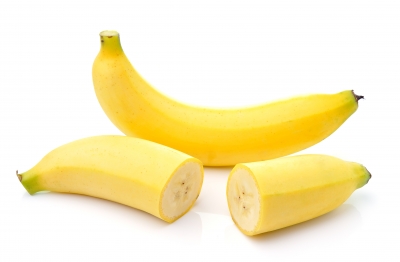Lower Blood Pressue by Combing Aerobic AND Resistance Training
A study published in the Journal of Strength and Conditioning Research evaluated the impact of resistance training versus aerobic training on arterial blood flow.
Research to date has shown a significantly lower arterial distensibility (AD) after resistance training, but a higher AD after aerobic exercise. Arterial distensibility (AD) is a measure of blood vessel elasticity. For heart health it’s important that blood vessels are able to expand and contract to maintain a consistent healthy blood pressure.
The Study
Here's another omega 3 option – Calamarine
The typical American diet tends to be low in omega 3 fatty acids, approximately 120 mg DHA/day, which is an omega 3 supplement may be beneficial. Some benefits omega 3’s have been linked to improvement in arrhythmias, blood pressure, lipoprotein(a) levels, arterial inflammation, HDL cholesterol, and endothelial function.
Fish oil is a very common source individuals choose to supplement to boost their intake of omega 3 fatty acids. Tuna, salmon, sardines, herring, and anchovies are common fish used for the production of fish oil supplements. Fish oil tends to have equal levels of EPA and DHA or in some cases may be slightly higher in EPA content.
A New Option
A new option produced by Pharma Marine Group is Calamarine. Calamarine is obtained from calamari, or squid, and contains higher levels of DHA. The company is also able to market Calamarine as “eco-friendly” because squid have a brief life cycle, breed rapidly, and are not endangered. Especially important with concerns regarding over-harvesting of our marine life, which fish oil production may play a part.
Are you young, active, consuming a healthy diet, AND still diagnosed with high blood pressure?
I’ve been receiving several questions related to this recently, so wanted to address it. Here’s an example of a question:
I am and always have been thin. I do not smoke, do not drink alcohol, eat a very healthy diet high in fruits/vegetables and low in processed foods, exercise daily, and get plenty of rest. I have been diagnosed with high blood pressure. What do I do?
In this situation the standard steps you need to take to lower high blood pressure do not necessarily apply. That doesn’t mean be lazy, don’t exercise, and eat a high fat diet. That means you need to work with your physician for a full evaluation/lab work to determine the cause of your high blood pressure, since you do not have the typical causes of high blood pressure (overweight, poor diet, etc.). Once this is known you’ll be able to outline a plan of action appropriate for your situation.
All the best,
Lisa Nelson RD
7 Natural Ways to Lower High Blood Pressure
http://lowerbloodpressurewithlisa.com
Lower Blood Pressure and Fight Cancer with Broccoli
Back in 2004, researchers conducting an animal study linked glucoraphanin, a compound present in broccoli sprouts, to reduced blood pressure risk, cardiovascular disease, and stroke. The broccoli sprouts were found to increase tissue antioxidant defense mechanisms, lower inflammatory response, and improve cardiovascular health.
This was especially interesting since most research on broccoli has been in connection with anti-cancer properties, which is actually what I want to share today.
More potent broccoli
Lower Blood Pressure with Quinoa
Quinoa (pronounced KEEN – wah) has become a hot commodity the past few months according to a National Restaurant Association survey.
What is quinoa?
Quinoa is not technically a grain, but the seed of a large plant called Chenoposium quinoa or Goosefoot plant. Quinoa is available in many colors (ivory, pink, red, white, brown, black) and forms (grains, flakes, cereals, pastas).
Nutrient Analysis
Lower Blood Pressure with Potassium
 The effectiveness of potassium to lower blood pressure is directly related to sodium. Potassium works to balance out the sodium in your diet. An adequate potassium intake can lower systolic pressure ~4.4 mm Hg and diastolic pressure ~2.5 mm Hg.
The effectiveness of potassium to lower blood pressure is directly related to sodium. Potassium works to balance out the sodium in your diet. An adequate potassium intake can lower systolic pressure ~4.4 mm Hg and diastolic pressure ~2.5 mm Hg.
If you want to prevent or lower blood pressure it’s very important you balance your intake of sodium and potassium. The more potassium in your diet and the lower the sodium, the better your blood pressure will be.
Sodium Recommendations
The typical American diet contains 3.6 grams of sodium daily. It’s recommended that sodium intake be limited to 2.3 grams or less daily (~1 teaspoon). If you already have high blood pressure you’ll want to restrict your sodium intake even further – less than 1500 mg/day.
How Much Potassium?



